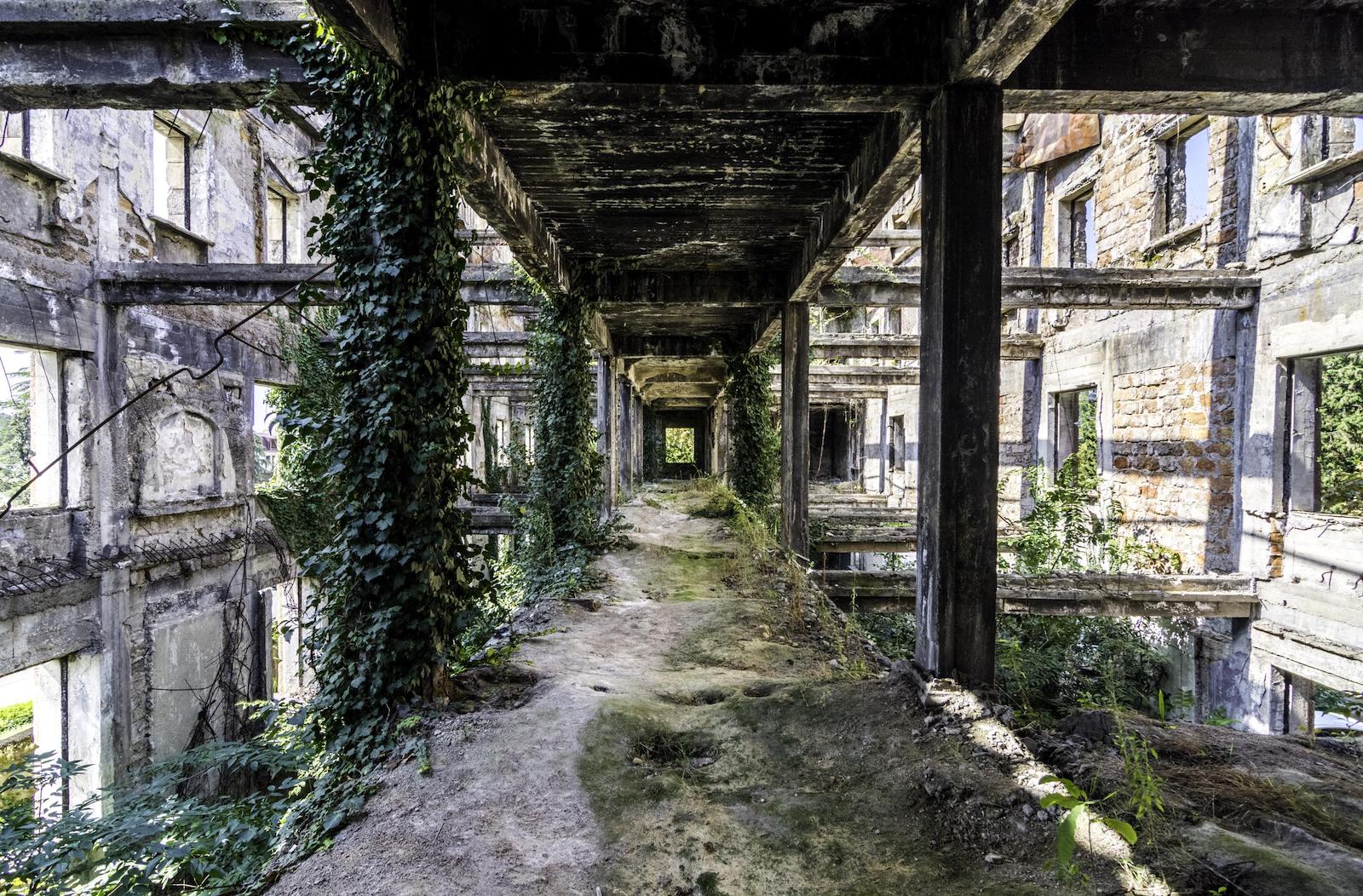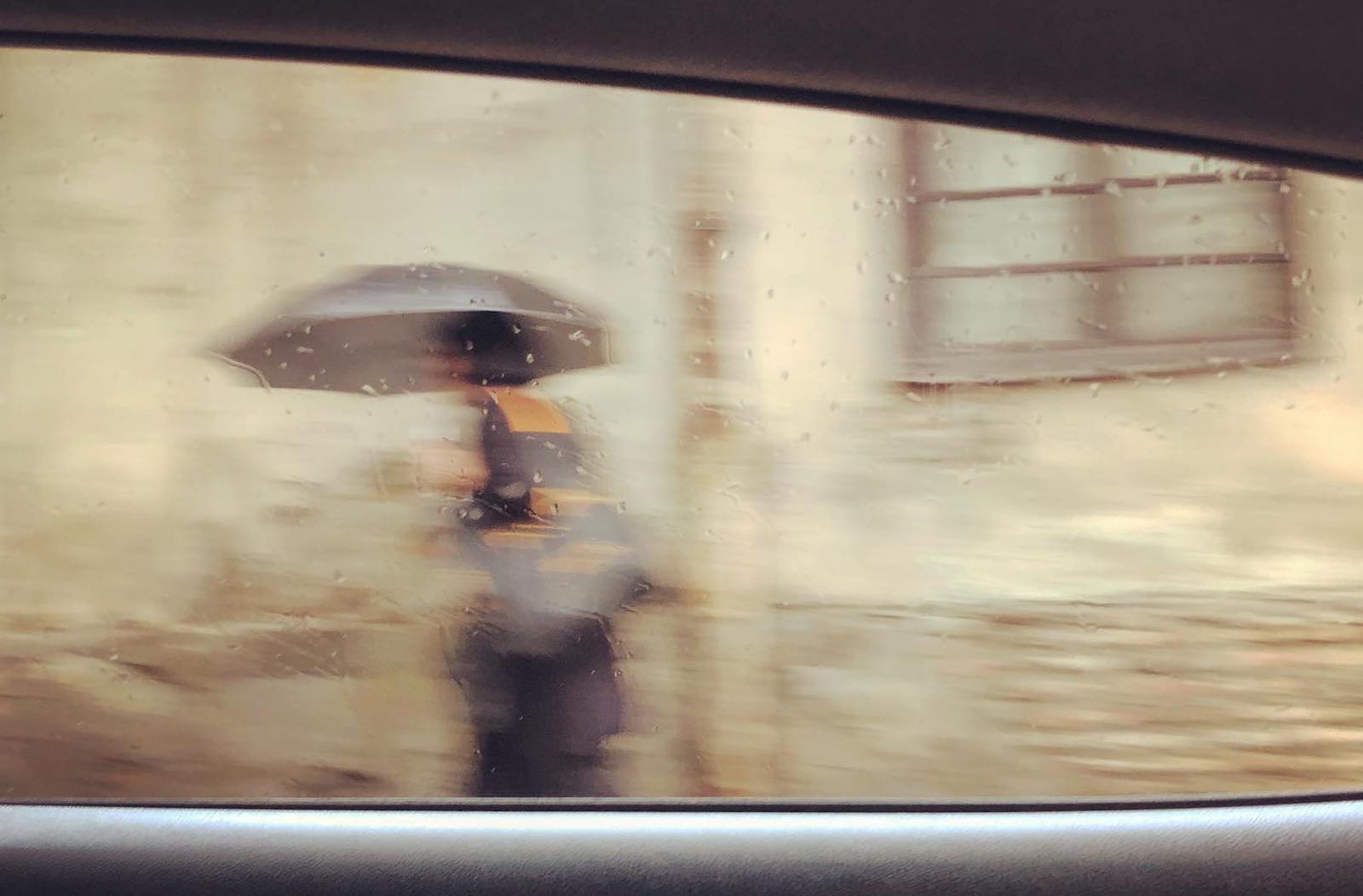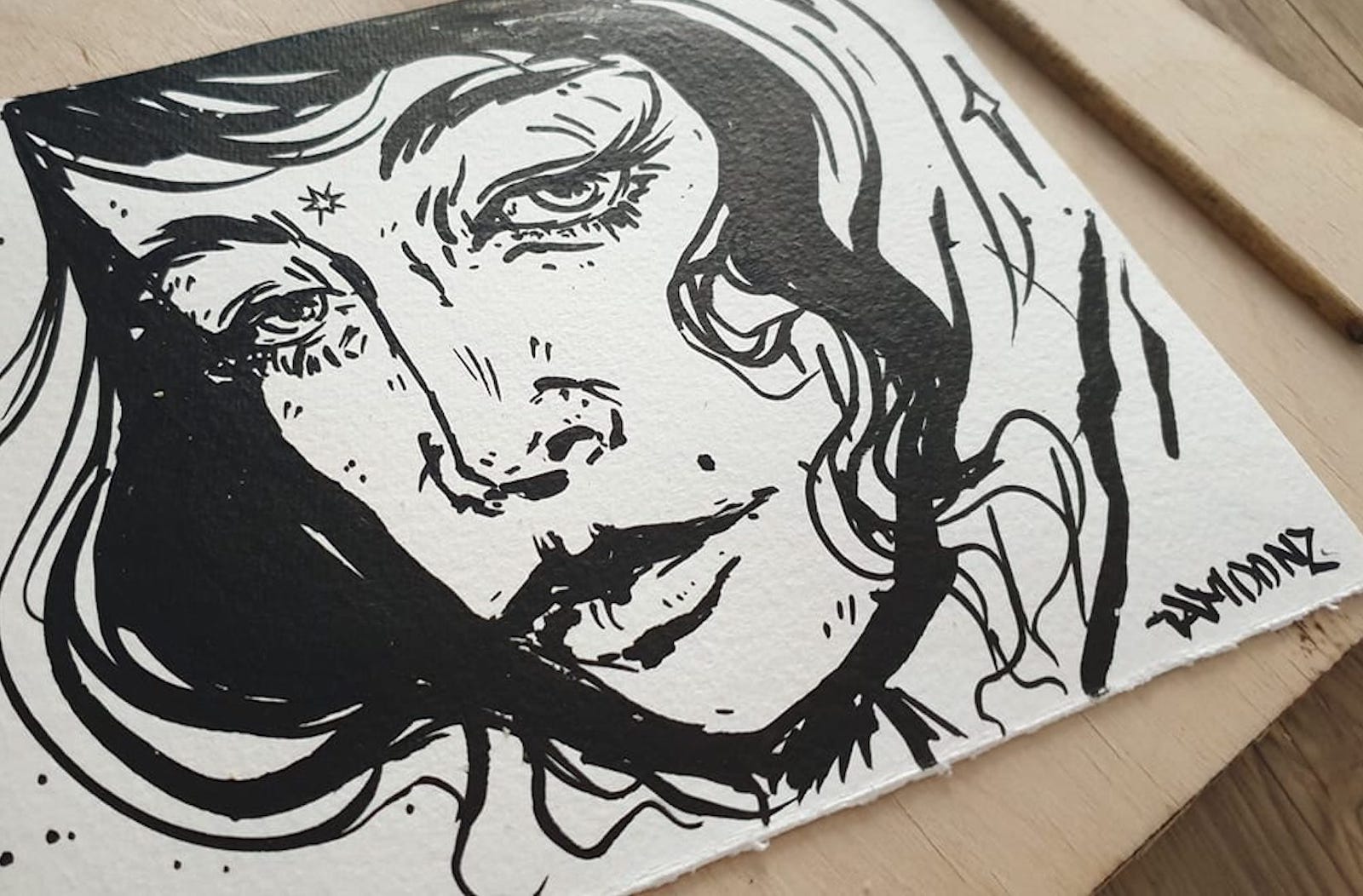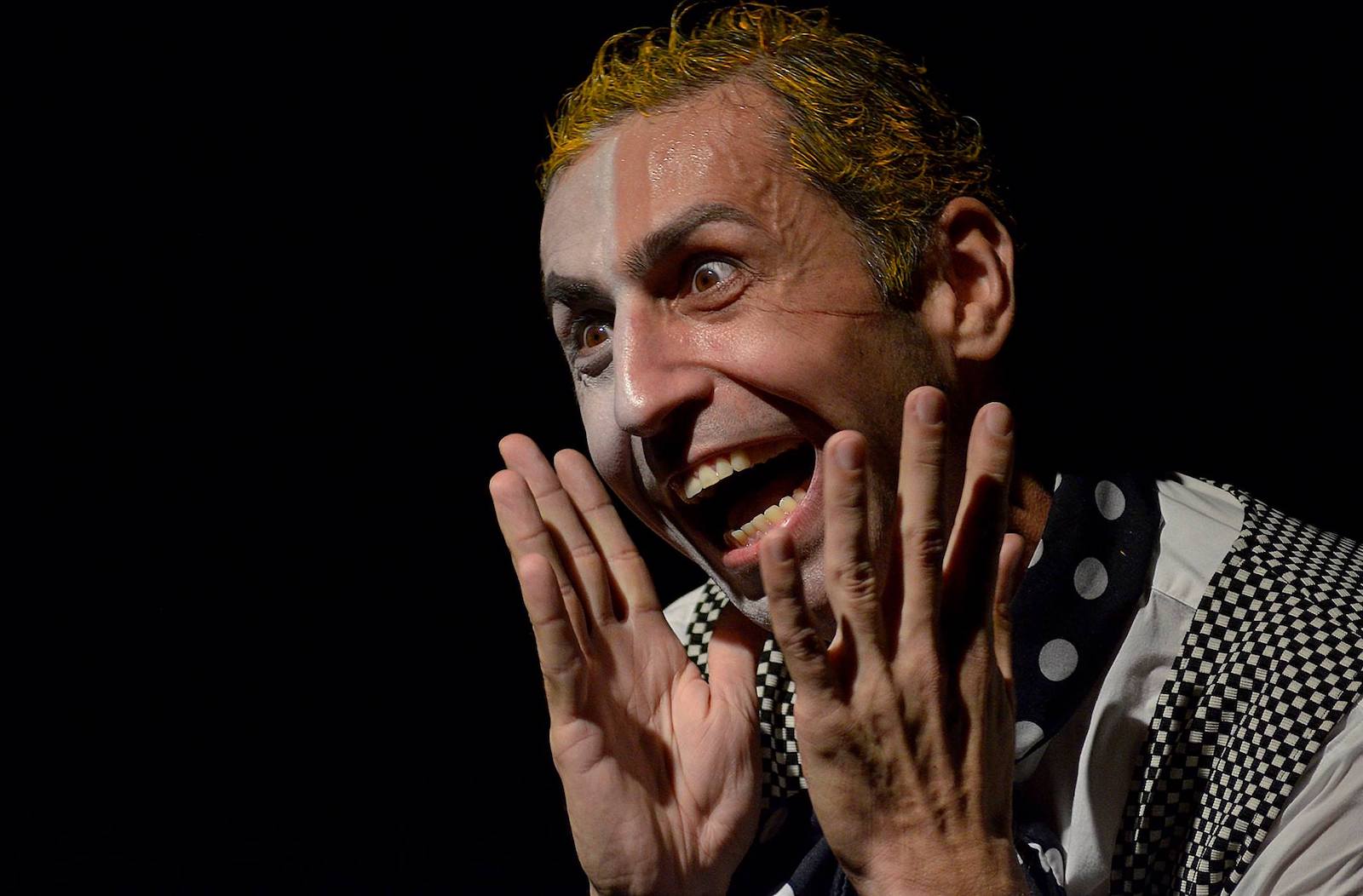
Filmmaker Anuna Bukia
By Liza Tsitsishvili
I’m going to introduce you to a young woman, Georgian film director Anuna Bukia, who had to leave her home with her parents in the 90s, during the conflict between Georgia and Abkhazia. She has been living in Tbilisi, far away from her home, for over 30 years now.
What kind of city is Tbilisi for you?
Anuna: It’s probably a rare city, the kind you can’t explain in one word. Two things come to my mind – multiethnic and unending. Tbilisi is a quiet unity of many different people. In my opinion, the whole idea of the city is the warm energy concentrated in its older parts. It burns a bit and makes you take care of it all the time. If you are unable to realize this obligation, then you don’t belong here.
If you’re someone who builds a city without energy or who doesn’t take care of the neighbor’s yard, then the multilingual relationships in the city will astonish you, and you’ll start looking for conflict and disregard the beauty. This is the kind of Tbilisi I got to know, and I often think that I saw all of what it had to offer, but these things keep evolving and changing.
How do you see living in Tbilisi in modern society for the people around you?
Anuna: If we take a close look, there are interesting and strange things going on in Tbilisi. Even though we couldn’t stop building “Panorama” and other weird glass things instead of interesting architectural buildings, we started to migrate. We got called by the old parts of the city and they became a part of our everyday life a lot more than before.
We come from Soviet neighborhoods to Vera, Sololaki, Abanotubani, and Chughureti. We come for relationships, cultural events, to live, and to explore Tbilisi again. That is why this city needs a character. Places without a character are for existing; the ones with a character are for living in them.
City vs. human?
Anuna: If we’re putting a monument or a human’s life at a stake, of course, the human is more important. But if we talk about that, I wish those living in the old town could realize better where they’re living. Living in a part that carries the city’s memory is a great responsibility.
This is not something the government can control; this is dictated by the city itself, and all you need to do is listen and move along with it. When you see a house in the style of Art Nouveau on Bako Street, you shouldn’t plan to build something without windows right next to it.
Where would you take your friends and guests in this city?
Anuna: My “tour” for my friends and guests goes like this: because they go to see Abanotubani themselves, I show them the hallways, doors, basements, yards, and houses of Sololaki and Chughureti. My main sources and strong energetic forces are Iverieli – E-library, Cira Elisashvili, Tbilisi Amarcord group, the map of Sovlab, publications of the Museum of Literature, and my friend Giorgi Varsimashvili.
Do cities have characteristic energies? What kind of city is Tbilisi, more European or more Asian?
Anuna: My perception of Tbilisi is geographically bound and consists of only those neighborhoods where I can feel the energy of the city. Based on this experience, Tbilisi is neither Europe nor Asia. That would’ve been too narrow of characterization for it. Tbilisi is Tbilisi for a long time now, with its burning Tbilisian energy and finely drawn neighborhood lines.
P.S. I forgot to mention Burusi before (this is my source as well).
If you want to learn about Tbilisi’s weird history, you have to see old cemeteries. You have to learn about Soviet Tbilisi as well, with its mosaics and architecture.
Where is Tbilisi, as the capital of this country, on the world map? How do you think it is integrated with the modern world? How did it get famous?
Anuna: It is famous because the world just discovered it. Soviet restrictions, propaganda, and pressure are becoming outdated just now. Now the borders are wide open and so on (even though Russia is trying to prevent this from happening). This is good and melancholic at the same time. Melancholic because Tbilisi dictated to the world how to act back in the day.
Now, Tbilisi is at the same time above and behind on a global scale. I think it will still come around as a leader. Just like the members of Hamkri always say, this city has been destroyed and rebuilt 27 times. That means, it can do the same on the 28th time as well, but this time immaterially.
There is this never-ending process of rediscovering the old that’s been forgotten in Tbilisi. Those educated and brave people who come back to Georgia are the ones who give it a new life.
That’s enough about Tbilisi, now I have to ask about your childhood home, about Sukhum, and the lost beaches.
Filmmaker Anuna Bukia remembers that she was four when she got thrown out of her home. All she has left from this place are a couple of blurry memories and some photos.
She went back to find her home only 24 years later, with a camera and a crew, and this decision was made primarily to find peace within herself. Anuna Bukia says in the interview that the Todua family helped her cross the border to Abkhazia illegally. The filmmaker crossed through river Enguri and reached Sukhumi with other refugees.
Anuna first started telling stories about others’ everyday lives, and when she started to edit the film, she showed people her childhood home as well. Anuna Bukia’s movie has a lot of characters, and their everyday lives are a lot like everyday war. These people, who have been living as refugees for years, cross the border secretly every day, through the river Enguri. The movie “I swam Enguri” premiered in 2018.
Tell us about your movie. The premiere was on the same date as the fall of Sukhumi. Why?
Anuna: Because this war is only remembered for a couple of days. The biggest problem is that they don’t remember what happened, and they’re not even interested. I think this is wrong from the side of the government and the community. This is the kind of topic that the government should regulate. It should also regulate the relationships between refugees and non-refugees, and resolve conflicts between them.
When I was screening the movie for different generations, I realized that people are not that coldhearted on the matter. They know the story, but they don’t know what story it is and it’s not a part of their everyday lives. You can’t surprise anyone with war, but you have to make them see the matter on a global scale and try to help others with your experience.
What is the main message of your movie for locals and the international community?
Anuna: The movie reminds people who forget intentionally or non-intentionally, that the dividing line of the region of conflict is too big and moving. Moving on both sides. People will see that Russia really is an occupier, and this should be declared. On the other side, the movie lets you see what’s going on right next to you.
How informed are people about the conflict, and what needs to be done for the gap between Georgians and Abkhazians to disappear?
Anuna: I have been taking part in these meetings since I was 13 years old. From 2010, I’ve come to a strong opinion: I don’t agree with the majority that we should praise Abkhazians just because they come here. I think we should be equal during these meetings. Most part of it is a farce. I principally don’t agree with the praising; there need to be no compromises.
Everything should have its name. The new generation has grown to be different; everyone’s memory is different, and that is why these meetings should be about understanding the dialogue, which is not what’s happening. We’re not moving forward, and not that many resources are left.
What do you think the Georgian government has done at different times?
Anuna: I don’t see what they’re doing and thinking. Their actions are often discriminatory. For example, when it comes to giving out homes, mostly those who are making the most noise get them. Georgia should evolve and become more appealing. If we compare it to Abkhazia, we’re more developed, but I don’t know if this is good or bad.
During meetings, we are more superior, but that’s not always good. Gaining international acknowledgment and attracting attention is very important. This conflict is like a lake that stands and doesn’t move. Every year, the situation worsens.
Personal story, home. How did it feel to see your home?
Anuna: Home? There is no home. To me, home does not exist. What happened – made it disappear. That’s not home. My home was the people, atmosphere, living there… white walls mean nothing. To me, every space is just a temporary place to live.
How was your first experience? What did you remember and what did you find?
Anuna: The scale of things. Now everything was a lot smaller than in childhood. I walked a lot there, not to miss a thing. I went wherever my heart told me to go. I filmed schools, buildings, and parks. It’s horrible, you don’t know how to find the addresses from your childhood. When I came back, it was very emotional to realize that the places I visited were the places my parents took me to. You don’t remember them consciously. I read a lot about genetic memory and its characteristics after that.
What does it mean to be a refugee in your country?
Anuna: Our mother tried to protect us from any discrimination. Being a refugee in Georgia is another war. Proving, always proving something – the country was in a bad state, people everywhere had problems, but this doesn’t justify them discriminating against us. Refugees here are not angry at them, though. Our parents succeeded, and we were raised with humane values. That is their achievement – our parents’.
Will we ever return to Abkhazia?
Anuna: Nothing gives me reason for optimism. What does it mean to return? This won’t be returning; we should unite. I see it as living with them, together again. That means that we should come together and not throw them away; we should just live next to them. Uniting without war is a humane thing to do, and that’s better.
Are you ready to go back?
Anuna: I’m ready to start everything all over again, to take part in societal processes. All that matters to me is to do something of value for my region and for us to unite again.
How does Abkhazia look today?
Anuna: In one word, Abkhazia today is a place where nature has won and reached even the houses that burned down during the war. Nature concealed every trace of war; it took over everything that’s in there. In one word, Abkhazia is upsetting but beautiful.
Translated by: Ana Mikatadze


